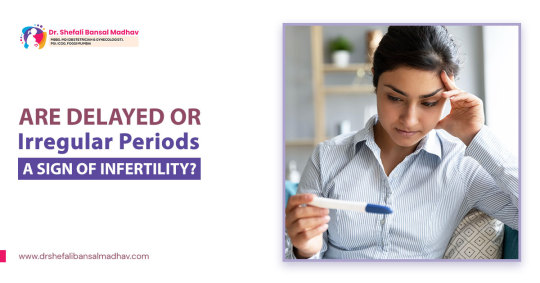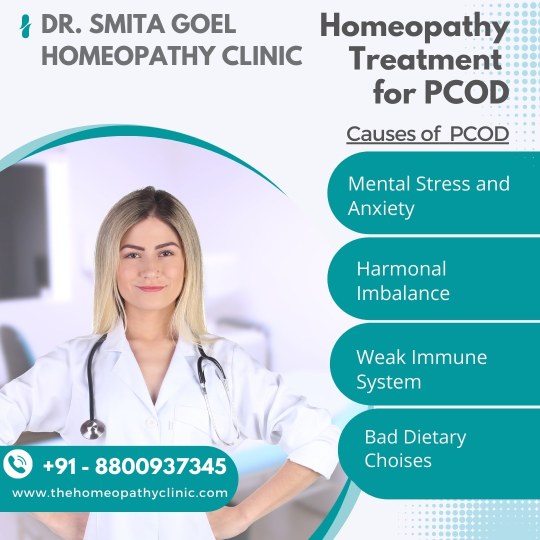#uterine Abnormalities or for having miscarriages
Text
dude as someone who understands the nuances of enmeshment + the varying degrees of abuse-versus-codependency I'm really more of a Beveryly-Did-Nothing-Wrong-er than the show, which is a Beverly-Is-Equally-At-Fault-er
#am I saying she did nothing wrong? no she did a bunch of stuff that was wrong#mostly lying to Genevieve when she asked her outright if it was her the whole time#but all the stuff that Elliot was doing on her own that she had no idea about? all the intrusions into her life and relationship that#Beverly didn't know how to stop? that doesn't seem like HER FAULT like it seems more like Elliot doing whatever the fuck she wants and#justifying it to them both retroactively by saying that it was all for beverly#like. the misusing her eggs to do something very very illegal and possibly unethical WITHOUT HER KNOWLEDGE OR PERMISSION the second that she#sets a boundary is um. like a big red flag to me about the nature of their relationship#I'm not saying they're not codependent or anything but like. holy shit how do you get off blaming Beverly for any of this#the end was very much Her Choice (kinda? hormones + trauma + cycling back into toxic patterns is uh. something really hard to break out of)#but like. holy god do you not see how Elliot was the bigger influence on this outcome#most of Beverly's unhappiness was due to the certainty of it making Elliot UNhappy#THATS what was killing her not that she wasn't meant to be happy. we need to compare this to the scenes of women feeling deformed for#uterine Abnormalities or for having miscarriages#like the. my body isn't meant to have babies my body kills babies directly translates over to the lines about not being meant to be happy#like. that's not the case it makes sense for you to feel that way but I promise that's not the case! fuck! this was such a compelling show#I'm mad that it ended on such a shitty note!! I can't say I didn't see it coming but like. fuck!!! what was any of it For!!!!!
2 notes
·
View notes
Text
Please, please, please everyone send up prayers for my sister Sochima!

She just gave birth to her 4th baby. Unfortunately, this’ll be her last child. His name is Solace, which is definitely what she needs from the Lord right now.

On top of that, Sochima and Ciaran have been stressed with their son Benjamin. Ben is 90% deaf in both ears and struggles with walking. He has a rare chromosome abnormality and they have yet to receive a proper diagnosis. Between the birth of Ben and little Solace, Sochima had several miscarriages, including an ectopic pregnancy that resulted in her getting an ovary removed. During her labor with Solace, she suffered an uterine rupture and had to undergo a hysterectomy. Sochima always said she would be willing to make sacrifices to make sure any children she conceived would have a chance at life. I’m so proud of her to have had so much faith in God to be able to do such a brave thing.

Sochima’s on bed rest for the forseeable future. Luckily her two oldest girls, Trinity and Hannah, are huge helps around the house. A few of our siblings have made trips to Henford to make sure Sochima’s alright, to help around the farm and to meet Solace. Thank you all for keeping my sister in your thoughts.
Yours, Isioma <3
#fundie simblr#fundie sims#fundie snark#sims 4 legacy#shs: izzy#ngl to you#this post was traumatizing for me to write#anything for the plot#tw miscarriage#tw hannah’s goofy ass shirt
13 notes
·
View notes
Text
Alyona Dixon, 24 (USA 2022)

Alyona with her son Walter
On September 22, 2022, LA resident Alyona Dixon went to Planned Parenthood and was told she was 8 weeks and 5 days pregnant.
Alyona loved children and hoped one day to operate a play center, but she felt that she wasn’t ready to add another child to her family. If she had been given support and assurance, maybe she and her baby would still be alive. But according to a medical officer who later reviewed Alyona’s case, Planned Parenthood gave Alyona what they considered “appropriate counseling”, which led to her undergoing a chemical abortion. The abortionist administered mifepristone and then misoprostol as a vaginal suppository. Although it was still legal, no method involving the vaginal administration of the abortion pill has ever been approved by the FDA. The drug itself has a Black Box warning.
Only four days after her visit to Planned Parenthood, Alyona had to go the ER at Dignity Health’s Blue Diamond Hospital. She reported suffering from “sharp tower abdominal pain since yesterday.”
Blue Diamond observed that Alyona was bleeding vaginally and that she was experiencing tenderness in the right lower quadrant. Despite the recent abortion, no pelvic exam was performed. Alyona’s ultrasound was interpreted by Dr. Justin J. Puopolo, who detected ‘abnormal vascular flow between the endometrium and the myometrium at the uterine fundus could represent retained products of conception and should be correlated with the patient’s serial beta-hcg levels. Complex material within the endocervical canal could reflect an abortion in progress or blood products.”
A pelvic exam would have given Alyona’s doctors a better chance for faster intervention. Instead, after receiving pain medication, a CT scan with abnormal results and an ultrasound that showed her dead child could be rotting inside of her, Alyona was discharged and told to arrange a follow-up appointment with a gynecologist. Blue Diamond employee Dr. Maag documented “a low suspicion for septic process/systemic infection.” This was a fatal mistake.
The next day, Alyona’s symptoms were even worse. She was seen at Desert View Hospital, where Dr. Clark “documented his clinical impression as abdominal pain, vomiting and diarrhea, severe dehydration, acute renal failure, leukocytosis, sepsis, lactic acidosis, hypokalemia, sinus tachycardia, metabolic acidosis, pulseless electrical activity, respiratory failure.” She never should have been discharged from Dignity Health in such a condition.
Despite all of Desert View’s attempts to save her life, Alyona continued to deteriorate. She was transferred to Summerlin Hospital, where she spent her last hours of life.
By 3:10 AM of September 28, Alyona acutely worsened. She had to be sedated and intubated, but vomited during the intubation. After about 5 minutes, she went into “a rhythm of pulseless ventricular tachycardia then asystole then pulseless electrical activity with bradycardia.”

All attempts at resuscitation failed. Alyona Dixon was pronounced dead at 5:32 AM.
The Clark County Coroner’s Office gave her cause of death as “complications from septic abortion.” (While the term “septic abortion” has historically been used to describe sepsis after a miscarriage (such as in the infamous and typically misrepresented case of Becky Bell, who miscarried and then died of pneumonia), it can also be used to describe an abortion death such as Alyona’s.)
A lawsuit was filed on behalf of Alyona’s husband Michael and her little son Walter. The The complaint alleges that the Emergency Department physician “negligently failed to conduct a pelvic exam”… “failed to order a consult with an OB/GYN despite ALYONA’S abnormal lab results, her clinical history, and her abnormal diagnostic imaging…” “…negligently discharged ALYONA without preforming a pelvic exam and without ordering an immediate consult with an OB/GYN…” and “negligently did not have a credentialed OB/GYN on-call at the facility,” all of which were categorized as substantial factors in Alyona’s death.

Oddly enough, Planned Parenthood was not named in the lawsuit for Alyona’s wrongful death despite being the cause of the entire incident.
Alyona Dixon should still be alive today.
#justice for alyona#planned parenthood#planned parenthood kills women#abortion pill#tw abortion#unsafe yet legal#tw murder#tw ab*rtion#abortion#abortion debate#death from legal abortion#tw malpractice#tw negligence#this is chemical abortion
9 notes
·
View notes
Text
Most common surgeries done by gynecologist surgeon
Gynecology surgery comprises any surgical procedure that involves the organs and structure of the female pelvic region: the ovaries, uterus, fallopian tubes, cervix, vulva, and vagina. There are several reasons why a woman might need to go through gynecology surgery. She might need treatment for a condition such as fibroids (benign tumors), endometriosis, cancer, ovarian cysts, pelvic inflammatory disease, chronic pelvic pain, abnormal bleeding or uterine prolapse. Gynecology surgery can also be used as permanent birth control.
The most common surgeries done by gynecologist surgeon are as follows:
Cervical Cryosurgery
Abnormal cervical cells are at times discovered during a routine Pap smear. Abnormal cells do not always indicate cancer, but your healthcare provider will likely want to do some follow-up tests or procedures. One procedure they might recommend is cervical cryosurgery. This procedure is a highly effective gynecological treatment that freezes a section of the cervix. Cryosurgery destroys these cells to stop them from developing into cancer.
Hysteroscopy
Hysteroscopy is a process that your healthcare provider may use to diagnose or treat uterine issues. This procedure might be used to:
Locate an intrauterine device
Remove adhesions (scar tissue)
Determine the cause of repeated miscarriage
During this procedure, a healthcare professional inserts a hysteroscope, a lighted, thin, telescope-like instrument, into your uterus through the vagina. Then, it sends pictures of your uterus to a screen for further test.
Pelvic Laparoscopy
Laparoscopy is a surgical procedure usually performed under general anesthesia. But it can be performed with other types of anesthesia while you are awake. It is used for:
Gallbladder removal
Tubal ligation (tying the fallopian tubes for permanent birth control)
Treating endometriosis and uterine fibroids
Hernia repair
The typical pelvic laparoscopy involves a small incision in the belly button or lower abdomen. A surgeon then pumps carbon dioxide into your abdomen to help them see your organs easily.
Dilation and Curettage
It is one of the most common gynecological procedures. During this process, a healthcare provider removes a portion of your uterine lining with a suction device or a sharp curette. The procedure can diagnose uterine conditions, including:
Uterine cancer
Endometrial hyperplasia (an abnormally thick uterine lining)
Uterine polyps (overgrowth of tissue in the uterine lining)
In addition, D&Cs are commonly used for miscarriage, abortion procedures, molar pregnancy, and retained placenta.
Common gynecological procedures by gynecologist surgeon include colposcopy, cervical cryosurgery, D&C, LEEP, hysteroscopy, and pelvic laparoscopy. Most of these procedures can help healthcare providers get a better look at the cervix, uterus, and vagina and take samples for a biopsy. Some of them can also treat specific conditions.
Understandably, you might have concerns about any process your healthcare provider or gynecologist recommends. Learning as much as you can is a good idea. In addition, it is essential to ask your doctor any questions you might have. Finally, do not forget to tell them if you may be pregnant, even though they usually do a test to check first.
2 notes
·
View notes
Text
Demystifying Female Infertility: Exploring 5 Potential Causes
Female infertility is a complex condition that affects a significant number of women around the world. The inability to conceive can be emotionally challenging and often prompts a search for answers. While infertility can have various underlying causes, this article aims to shed light on five potential factors that may contribute to female infertility. By understanding these causes, individuals and healthcare professionals can work together to explore appropriate interventions and treatment options.
Hormonal Imbalances: One of the common causes of female infertility is hormonal imbalances. Hormones such as estrogen, progesterone, luteinizing hormone (LH), and follicle-stimulating hormone (FSH) play vital roles in regulating the menstrual cycle and promoting ovulation. Any disruption in the delicate balance of these hormones can lead to irregular or absent ovulation, making it difficult for women to conceive.
Structural Abnormalities: Structural abnormalities within the reproductive system can also contribute to female infertility. Conditions such as polycystic ovary syndrome (PCOS), endometriosis, uterine fibroids, or blocked fallopian tubes can hinder the fertilization process or implantation of a fertilized egg. These conditions may require medical intervention or surgical procedures to restore fertility.
Age-related Factors: Advancing age is a significant factor that impacts female fertility. As women age, the quantity and quality of their eggs decline. The chances of chromosomal abnormalities and miscarriages increase, making it more challenging to conceive naturally. It is important for women to be aware of their reproductive timeline and seek assistance from healthcare professionals if they face difficulties in conceiving as they get older.
Lifestyle Factors: Certain lifestyle factors can contribute to female infertility. Obesity, excessive alcohol consumption, smoking, drug abuse, and high levels of stress can all have adverse effects on reproductive health. These factors can disrupt hormonal balance, interfere with ovulation, and affect the overall fertility of women. Adopting a healthy lifestyle that includes regular exercise, a balanced diet, and stress management techniques can positively impact fertility.
Medical Conditions and Treatments: Certain medical conditions and treatments can also cause infertility in females. Conditions such as thyroid disorders, autoimmune diseases, diabetes, and cancer can affect fertility. Additionally, treatments such as chemotherapy and radiation therapy can damage the reproductive organs and impair fertility. It is crucial for women with these conditions to consult with their healthcare providers to explore fertility preservation options before undergoing such treatments.

Conclusion: Understanding the potential causes of female infertility is crucial for women and healthcare professionals alike. By identifying these factors, individuals can take proactive steps to address and manage their reproductive health. It is important to remember that each case of infertility is unique, and a comprehensive evaluation by a healthcare professional is essential to determine the underlying cause and develop an appropriate treatment plan. With advancements in medical science and fertility treatments, many individuals can still achieve their dream of starting a family despite facing infertility challenges.
Looking for a Free IVF Consultation with an IVF Specialist? Contact Dr. Shivani Sachdev Gour.
2 notes
·
View notes
Text
potential complications associated with PCOS and PCOD
PCOS (Polycystic Ovary Syndrome) and PCOD (Polycystic Ovary Disorder) are conditions that can lead to various complications, affecting both physical and reproductive health. Here are some potential complications associated with PCOS and PCOD:
Infertility: One of the most significant complications of PCOS and PCOD is infertility. Irregular ovulation or lack of ovulation can make it difficult for women to conceive.
Increased Risk of Type 2 Diabetes: Insulin resistance, a common feature of PCOS/PCOD, can lead to high blood sugar levels and an increased risk of developing type 2 diabetes.
Gestational Diabetes: Women with PCOS/PCOD have a higher risk of developing gestational diabetes during pregnancy, which can lead to complications for both the mother and baby if not managed properly.
High Blood Pressure (Hypertension) and Heart Disease: PCOS/PCOD is associated with an increased risk of developing high blood pressure and heart disease, especially in women who are overweight or obese.
Endometrial Cancer: Irregular or absent menstrual cycles can lead to the buildup of the uterine lining (endometrium), increasing the risk of endometrial cancer in women with PCOS/PCOD.
Obesity and Metabolic Syndrome: Many women with PCOS/PCOD struggle with weight management and are at an increased risk of developing obesity and metabolic syndrome, which is a cluster of conditions including high blood pressure, high blood sugar, excess body fat around the waist, and abnormal cholesterol or triglyceride levels.
Sleep Apnea: PCOS/PCOD is associated with an increased risk of sleep apnea, a sleep disorder characterized by pauses in breathing during sleep.
Depression and Anxiety: Hormonal imbalances and the challenges associated with managing symptoms of PCOS/PCOD can contribute to depression and anxiety in some women.
Hirsutism and Acne: Excess levels of androgens (male hormones) in women with PCOS/PCOD can lead to symptoms such as hirsutism (excessive hair growth on the face, chest, and back) and acne.
Complications during Pregnancy: Women with PCOS/PCOD have an increased risk of pregnancy complications, including miscarriage, preeclampsia (high blood pressure during pregnancy), and premature birth.
It's essential for women with PCOS/PCOD to work closely with their healthcare providers to manage their symptoms and reduce their risk of complications. Lifestyle modifications, such as maintaining a healthy weight, eating a balanced diet, exercising regularly, and managing stress, can help improve symptoms and reduce the risk of associated complications. Additionally, medication may be prescribed to help regulate menstrual cycles, lower insulin levels, and manage other symptoms. Regular monitoring and screening for related conditions, such as diabetes and heart disease, are also important for overall health and well-being.
0 notes
Text
https://yashodaivfcentre.com/bulky-uterus-causes-of-enlarged-uterus/

What is a Bulky Uterus, Enlarged Uterus ?
An enlarged bulky uterus, also known as adenomyosis, is a gynaecological condition used to indicate a larger uterus than normal. This can cause an enlarged uterus to become enlarged than usual or ‘bulky’. The symptoms of this condition result in heavy or prolonged menstrual bleeding, painful periods, and back pain. This Bulky uterus affects some women with infertility or miscarriages.
Causes of Bulky Uterus:
The exact cause of a bulky uterus is not fully understood. However, there are some factors that have been linked to its development:
Hormonal imbalance: Estrogen is the hormone responsible for thickening the uterine lining each month in preparation for pregnancy. If there is an excess of estrogen or a lack of progesterone (the hormone that balances estrogen), it can cause the endometrium to grow beyond the uterine walls.
Childbirth: It is common among women who have had many pregnancies, women who have given birth may be at a higher risk of acquiring this illness.
Age: Adenomyosis is most commonly diagnosed in women in their 40s and 50s, although it can occur at any age.
Prior uterine surgery: Procedures such as a cesarean section or fibroid removal may increase the risk of developing adenomyosis.
Factors Contributing to a Bulky Uterus
Diagnosing a Bulky Uterus
Identifying and Confirming a Diagnosis
Diagnosing a bulky uterus involves a comprehensive approach that may include:
Detailed Medical History
Pelvic Examination
Ultrasound Imaging
MRI
Hysteroscopy
It's crucial to seek specialized medical care, as a bulky uterus shares symptoms with other conditions, such as fibroids and endometrial polyps.
The Connection Between Bulky Uterus and Fibroids
Are Bulky Uterus and Fibroids the Same?
Bulky Uterus and Fibroids are not the same, although both can cause the uterus to become bulky, enlarged. In the former, endometrial tissue is involved, whereas in the latter, uterine muscle tissue is involved. In certain instances, they can potentially coexist, which would complicate diagnosis and therapy.
Natural Remedies for Bulky Uterus and Fibroids
Can You Reduce a Bulky Uterus or Fibroids Naturally?
While natural remedies cannot entirely cure adenomyosis or fibroids, some lifestyle changes may help manage symptoms:
Maintaining a healthy diet
Regular Exercise
Eating a balanced diet rich in fruits, vegetables, and whole grains may help reduce symptoms associated with both conditions.
Exercise and Bulky Uterus
What is the Best Exercise for Those with a Bulky Uterus?
Pelvic floor exercises can help with uterine health and, in some cases, reduce discomfort associated with adenomyosis. In addition to being excellent for strengthening the core and encouraging overall body relaxation, yoga and pilates can also assist in reducing discomfort and stress related to the illness. Consult the best infertility specialists before beginning any exercise.
Understanding the Normal Size of a Bulky Uterus
'Bulky Uterus': When Does It Become a Health Issue?
The normal size of a uterus can vary. However, when the uterus becomes abnormally enlarged, it may be a sign of health issues, like adenomyosis or fibroids, necessitating further investigation and potential treatment.
Treatment Options for a Bulky Uterus
Addressing Adenomyosis and Fibroids Medically
Treatment for a bulky uterus ranges from medication to surgical intervention:
Hormone therapy is one type of medication used to treat symptoms.
Surgical options can vary in discomfort from laparoscopic surgery to remove growths to hysterectomy for severe cases or when fertility is no longer a concern.
Dietary Choices and Bulky Uterus
Which Foods are Beneficial in Managing a Bulky Uterus?
Incorporating certain foods into your diet may help manage symptoms related to a bulky uterus. Foods rich in anti-inflammatory properties, such as omega-3 fatty acids found in fish and flaxseeds and green leafy vegetables, could be beneficial. Additionally, reducing red meat and dairy intake may also help alleviate symptoms.
How Yashoda IVF Center is Transforming Fertility Treatment for Patients with Bulky Uterus
Yashoda IVF Fertility and IVF Centre is dedicated to a cutting-edge approach to fertility that offers the best infertility treatment in Navi Mumbai for patients with a bulky uterus. They prioritize not only medical treatment but also emotional support and counselling, ensuring an extensive approach to patient care. Yashoda IVF Center is revolutionizing fertility treatment, providing hope for couples struggling to conceive.
Book a Free Consultation at Yashoda IVF Centre
Taking the First Step Towards Fertility
For those looking to navigate fertility challenges, a consultation at Yashoda IVF Fertility Centre can be the first step toward understanding options and planning for effective treatment.
Bulky uterus is a difficult condition that requires in-depth medical understanding and personalized care. Yashoda IVF Fertiliy and IVF Centre stands as a beacon for those on the fertility path, relying on a balance of advanced Fertility treatments in Navi Mumbai. By acknowledging the challenges and offering a comprehensive support system, patients can take proactive steps toward their fertility goals and overall well-being.
Conclusion
A bulky uterus can be caused by various factors, including hormonal imbalances and pregnancy-related events like childbirth or uterine surgery. While natural remedies, food habits and lifestyle changes may help manage symptoms, it's crucial to seek medical care from a best Fertility specialist in Navi Mumbai for accurate diagnosis and appropriate treatment options. Remember to prioritize your health and wellbeing by seeking professional help early on if you experience any symptoms related to a bulky uterus.
#bulky#bulkyuterus#uterus#ivf treatment#ivf clinic in navi mumbai#ivf treatment in navi mumbai#ivf centre in navi mumbai#best ivf centre in navi mumbai#ivf clinic in vashi#in vitro fertilization#fertilitycenter#ivf centre#fertility#fertilitycare
0 notes
Text
Experts recommend women see a gynecologist at least once a year. ~ Toni Weschler, MPH
“Toni Weschler introduced the Fertility Awareness Method (FAM) in 1995 — a natural and effective birth control option — women still barely understood their menstrual cycles.”
Your menstrual cycle is not something that should be shrouded in mystery. ~ Toni Weschler
“Cervical fluids have two jobs:
• Assisting the sperm toward the egg.
• Preventing the sperm from entering the cervix.”
“Cervical fluids have two jobs:
• Assisting the sperm toward the egg.
• Preventing the sperm from entering the cervix.
The condition of cervical secretions can signal fertile times or hint at dysfunction. That said, FAM is essential knowledge for healthcare professionals and menstruating women to prevent any reproductive oddities. The method can detect problems such as:
• Lack of ovulation
• Late ovulation
• Infertile cervical fluid
• Hormonal imbalances
• Miscarriages”
“Most contraception aids demonstrate side effects, some of which are detrimental to female health:
• Oral contraceptives increase the risk of breast and cervical cancer.
• Intrauterine devices (IUDs) can cause chronic inflammation and painful menstruation.
• Diaphragms, cervical caps, and sponges can provoke vaginal infections.”
“FAM encourages observation of vaginal discharge during ovulation. For instance, changes in cervical fluid patterns are natural during that period. A wetter and stickier cervical fluid indicates high fertility, which happens days before ovulation. Another way to confirm a pregnancy is by observing your waking temperature. Rising body heat usually indicates successful ovulation, while estrogen lowers the physical temperature before the egg’s release.”
“You'll also notice an increase in cervical fluid before egg release. Increased progesterone causes an excess of non-fertile cervical fluid that prevents sperm from further entry.
Examine your cervical fluids right after your period.
• Focus on vaginal sensation; does it feel dry, sticky, or wet?
• Check if it stretches or breaks.”
“The most common female reproductive diseases include:
• Ovarian cysts
• Endometriosis
• Polycystic Ovarian Syndrome (PCOS)”
“The two most familiar types of cysts are functional and follicular cysts. The former develops within the body’s regular functions but continues growing beyond the normal size, causing irregular menstrual cycles. As for the latter, follicular cysts originate from egg follicles that enlarge into a cyst, preventing ovulation. Follicular cysts can resolve independently but may still cause chronic pelvic pain; progesterone injections or surgery can successfully treat these fluid-filled sacs.”
“During endometriosis, the waste products of menstruation remain inside the uterus, growing as cysts. The early stages of endometriosis can be challenging to detect as it takes time to accumulate the leftover uterine tissue and blood remnants. So, most of the time, it has already spread all over the ovary before doctors diagnose the condition.”
“p olycystic ovarian syndrome affects 5% to 10% of fertile women, presenting long-term health risks. The most common symptoms include:
• Irregular cycles lasting over 35 days
• Abnormally frequent cervical fluid release
• Facial or excessive hair
• Obesity
• Inability to conceive
Hormonal birth control and lifestyle changes can help manage the condition, but further professional intervention is necessary.”
The age of menopause is likely to concur in women of the same biological family. ~ Toni Weschler, MPH
“Fertility starts to diminish about thirteen years before menopause. If you'd like to preserve your eggs, seek testing for endometriosis, PCOS, and ovarian cysts. If any of these conditions come up on the radar, you must address them before pregnancy. In addition to aging, these ailments can significantly harm your fertility.”
…Women are fertile for only a fraction of the time men are. ~ Toni Weschler
“Any woman looking to have children in the future must check her ovaries early to know the number of fertile eggs left. The Anti-Mullerian Hormone (AMH) test and the Antral Follicle Count are standard fertility tests suitable for women of childbearing age. In addition, safe sex also reduces the chances of contracting STIs, preventing the scarring of fallopian tubes and preserving more fertile eggs.
If you plan to have children in your 30s or later, egg-freezing technologies may help you.”
“Whenever a woman is ready, she undergoes in vitro fertilization (IVF) to conceive a child artificially. However, the success rate of IVF is still low.
People looking to freeze their eggs must avoid surgery on their ovaries to prevent their mature eggs from scarring.”
“Male health is equally vital for smooth pregnancy and childbirth. That said, men must check their fertility as regularly as their opposite-sex partners.
The most common tests for male fertility are:
• Semen analysis
• Sperm penetration
• Sperm DNA
A semen analysis is the most common test to determine sperm activity. To perform it, urologists collect the semen and count the exact number of sperm with normal shape and motility.”
“men and women can improve their reproductive health by, first and foremost, changing their lifestyles. Lowering caffeine, nicotine, and alcohol consumption or cutting it out completely is a good start. Focus more on low-carb and low-glycemic diets and drink at least eight cups of non-caffeinated liquids daily.
As for women, p remenstrual syndrome (PMS) and menopause are prevailing hormonal battles, with the most popular treatments including:
• Prescribed medications like diuretics, antidepressants, or mood stabilizers
• Osteopathy
• Hormone therapy
• Natural alternatives”
“Women going through menopause have to deal with:
• Sexual desire and sensitivity loss
• Lower energy
• Increased pubic hair
• Poor calcium levels
Furthermore, acupuncture and acupressure can harmonize your hormones and help you enter menopause with ease. The most important thing to remember is that menopause may jumble your hormones for a while, but it doesn’t steal your sensuality.
Did you know? A female is born with a lifetime’s worth of eggs.”
“Finally, it's worth reminding women that they don't have to give early birth to satisfy societal norms. Either way, you’re safe to freeze your eggs and have children when you’re mentally and financially ready.
Try this:
• Monitor your cervical fluid: An egg-white color signals upcoming or a recently finished ovulation.
• Try a luteinizing hormone (LH) urine test. This hormone spikes 24 hours before egg release.
• A slight increase in body temperature follows the fertile window. Measure your body heat regularly at the same time to notice a temperature change.”
My highlight from Taking Charge of Your Fertility on the Headway app. Start making yours 👇
https://headway.onelink.me/9USK?pid=app_referral&af_web_dp=https%3A%2F%2Fweb.get-headway.com%2Fbook%2F&c=highlight&af_siteid=highlights
My highlight from Taking Charge of Your Fertility on the Headway app. Start making yours 👇
https://headway.onelink.me/9USK?pid=app_referral&af_web_dp=https%3A%2F%2Fweb.get-headway.com%2Fbook%2F&c=highlight&af_siteid=highlights
My highlight from Taking Charge of Your Fertility on the Headway app. Start making yours 👇
https://headway.onelink.me/9USK?pid=app_referral&af_web_dp=https%3A%2F%2Fweb.get-headway.com%2Fbook%2F&c=highlight&af_siteid=highlights
My highlight from Taking Charge of Your Fertility on the Headway app. Start making yours 👇
https://headway.onelink.me/9USK?pid=app_referral&af_web_dp=https%3A%2F%2Fweb.get-headway.com%2Fbook%2F&c=highlight&af_siteid=highlights
My highlight from Taking Charge of Your Fertility on the Headway app. Start making yours 👇
https://headway.onelink.me/9USK?pid=app_referral&af_web_dp=https%3A%2F%2Fweb.get-headway.com%2Fbook%2F&c=highlight&af_siteid=highlights
My highlight from Taking Charge of Your Fertility on the Headway app. Start making yours 👇
https://headway.onelink.me/9USK?pid=app_referral&af_web_dp=https%3A%2F%2Fweb.get-headway.com%2Fbook%2F&c=highlight&af_siteid=highlights
I wanted to share this thought-provoking idea with you 🤗
Start discovering thousands of them on the Headway app today 👇
https://headway.onelink.me/9USK?pid=app_referral&af_web_dp=https%3A%2F%2Fweb.get-headway.com%2Fbook%2F&c=quote&af_siteid=summary_text
My highlight from Taking Charge of Your Fertility on the Headway app. Start making yours 👇
https://headway.onelink.me/9USK?pid=app_referral&af_web_dp=https%3A%2F%2Fweb.get-headway.com%2Fbook%2F&c=highlight&af_siteid=highlights
I wanted to share this thought-provoking idea with you 🤗
Start discovering thousands of them on the Headway app today 👇
https://headway.onelink.me/9USK?pid=app_referral&af_web_dp=https%3A%2F%2Fweb.get-headway.com%2Fbook%2F&c=insight&af_siteid=summary_text
My highlight from Taking Charge of Your Fertility on the Headway app. Start making yours 👇
https://headway.onelink.me/9USK?pid=app_referral&af_web_dp=https%3A%2F%2Fweb.get-headway.com%2Fbook%2F&c=highlight&af_siteid=highlights
My highlight from Taking Charge of Your Fertility on the Headway app. Start making yours 👇
https://headway.onelink.me/9USK?pid=app_referral&af_web_dp=https%3A%2F%2Fweb.get-headway.com%2Fbook%2F&c=highlight&af_siteid=highlights
My highlight from Taking Charge of Your Fertility on the Headway app. Start making yours 👇
https://headway.onelink.me/9USK?pid=app_referral&af_web_dp=https%3A%2F%2Fweb.get-headway.com%2Fbook%2F&c=highlight&af_siteid=highlights
My highlight from Taking Charge of Your Fertility on the Headway app. Start making yours 👇
https://headway.onelink.me/9USK?pid=app_referral&af_web_dp=https%3A%2F%2Fweb.get-headway.com%2Fbook%2F&c=highlight&af_siteid=highlights
My highlight from Taking Charge of Your Fertility on the Headway app. Start making yours 👇
https://headway.onelink.me/9USK?pid=app_referral&af_web_dp=https%3A%2F%2Fweb.get-headway.com%2Fbook%2F&c=highlight&af_siteid=highlights
My highlight from Taking Charge of Your Fertility on the Headway app. Start making yours 👇
https://headway.onelink.me/9USK?pid=app_referral&af_web_dp=https%3A%2F%2Fweb.get-headway.com%2Fbook%2F&c=highlight&af_siteid=highlights
My highlight from Taking Charge of Your Fertility on the Headway app. Start making yours 👇
https://headway.onelink.me/9USK?pid=app_referral&af_web_dp=https%3A%2F%2Fweb.get-headway.com%2Fbook%2F&c=highlight&af_siteid=highlights
My highlight from Taking Charge of Your Fertility on the Headway app. Start making yours 👇
https://headway.onelink.me/9USK?pid=app_referral&af_web_dp=https%3A%2F%2Fweb.get-headway.com%2Fbook%2F&c=highlight&af_siteid=highlights
My highlight from Taking Charge of Your Fertility on the Headway app. Start making yours 👇
https://headway.onelink.me/9USK?pid=app_referral&af_web_dp=https%3A%2F%2Fweb.get-headway.com%2Fbook%2F&c=highlight&af_siteid=highlights
I wanted to share this thought-provoking idea with you 🤗
Start discovering thousands of them on the Headway app today 👇
https://headway.onelink.me/9USK?pid=app_referral&af_web_dp=https%3A%2F%2Fweb.get-headway.com%2Fbook%2F&c=quote&af_siteid=summary_text
My highlight from Taking Charge of Your Fertility on the Headway app. Start making yours 👇
https://headway.onelink.me/9USK?pid=app_referral&af_web_dp=https%3A%2F%2Fweb.get-headway.com%2Fbook%2F&c=highlight&af_siteid=highlights
I wanted to share this thought-provoking idea with you 🤗
Start discovering thousands of them on the Headway app today 👇
https://headway.onelink.me/9USK?pid=app_referral&af_web_dp=https%3A%2F%2Fweb.get-headway.com%2Fbook%2F&c=insight&af_siteid=summary_text
0 notes
Text
Are Delayed Or Irregular Periods A Sign Of Infertility?

Irregular periods are very common complaints. If your periods are unpredictable, you should see a gynecologist. Though it’s common, it’s concerning. Typically, a menstrual cycle happens at regular intervals. If you find you’ve missed periods with heavy or light periods, consult your doctor. Delayed periods may indicate fertility issues. You might top infertility specialist in Siliguri to get a proper diagnosis and care.
Data show that abnormal ovulation causes 30% to 40% of all cases of infertility. No periods, irregular periods, or abnormal bleeding often indicate that you aren't ovulating. This condition is medically known as anovulation. To determine the reason for anovulation, your doctor may give tests like:
Thyroid tests
PCOS test
Pelvic ultrasound
Hysteroscopy to look inside your uterus to detect abnormality
Your doctor may recommend fertility medication to induce ovulation.It depends on the cause of the illness that makes your period irregular.
There are safe and effective medications to correct anovulation.
Some of the reasons for missing or irregular periods:
Polycystic ovary syndrome
Polycystic ovarian syndrome (PCOS) is a common ovulation issue. PCOS affects around 5% to 10% of women in their reproductive years. It’s a hormonal disorder but its cause is unknown.
Untreated PCOS can impair your ovarian function. It causes ovaries to swell and small cysts to develop in and around your ovaries.
Symptoms
No periods
Irregular bleeding
Heavy periods
No ovulation
Irregular ovulation
Obesity
Acne or oily skin
Insulin resistance
Excess hair growth on your body and face (hirsutism)
Thinning hair or male-pattern baldness
High blood pressure
Fertility and PCOS
Untreated PCOS can interfere with your fertility. Plus, if you're overweight, it might be more challenging. Women with PCOS have a higher risk for:
Infertility
Miscarriage
Premature birth
Gestational diabetes
Heart disease
Type 2 diabetes
Endometrial cancer
High blood pressure during pregnancy
About 70-80% chance of infertility increases with PCOS.
Possible causes of irregular or missing periods:
PCOS
Thyroid disorder
Stress
Too much exercise
Having an intrauterine device
Breastfeeding
Uterine fibroids
Uterine polyps
Lifestyle choices can hamper fertility. These include –
alcohol, smoking, processed foods (unhealthy diet), low-quality sleep, more stress, physical inactivity, etc.
Talk to the best infertility specialist in Siliguri for all-inclusive treatment and guidance.
Too much or too little thyroid hormone can cause missing or irregular periods. It may cause your periods to stop for several months. Hypothyroidism and hyperthyroidism can prevent the release of an egg from your ovary. Plus, they can be responsible for pregnancy loss.
Medications, such as contraceptives or antidepressants, can affect menstrual regularity. Conditions like endometriosis or uterine fibroids may cause missing or irregular periods.
If you're concerned about irregular periods, consult your healthcare provider. Doctors check your medical history, perform necessary tests, and provide guidance. Initial treatment options may include lifestyle changes and medications. Further, you might need hormone therapy and fertility treatments. You can consult the best infertility doctor in Siliguri today.
0 notes
Text
Uterine Bleeding Specialist in Alexandria VA

Unusual uterine bleeding can cause concern, particularly when you don’t know the cause. Seeking care quickly is crucial when this occurs outside of your regular menstrual cycle. Here’s how you can find the top uterine bleeding specialist in Alexandria, and what you can expect for diagnosis and treatment.
Abnormal Uterine Bleeding: An Overview
The definition of this condition is bleeding that is unpredictable in amount, timing, and duration. It generally happens outside of your regular menstrual cycle, but it can include bleeding during your cycle that is abnormal.
The causes include:
Hormonal imbalances that typically involve excessive estrogen or insufficient progesterone
Irregular ovulation
Polycystic ovary syndrome (PCOS)
Polyps
Uterine fibroids
Cancer
Risk factors such as age and obesity can increase the likelihood of developing abnormal uterine bleeding.
What Exactly Does a “Regular” Menstrual Cycle Mean?
A typical menstrual cycle is an important aspect of your reproductive health, yet it can manifest differently in individuals. It usually spans from 21 to 35 days, though some women may experience variations outside this range. The menstrual cycle comprises four phases: menstruation, the follicular phase, ovulation, and the luteal phase.
Menstruation, which marks the beginning of the cycle, entails the shedding of the uterine lining. This bleeding usually lasts for two to seven days, with an average blood loss of approximately 30 to 40 milliliters (mL).
The flow’s intensity may vary. It may start lightly, gradually increase, and then diminish. A normal menstrual cycle is characterized by regularity, predictable patterns, minimal discomfort, and consistent flow, all of which typically do not signal abnormal bleeding.
How Is Uterine Bleeding Diagnosed?
An exam by an experienced specialist, a gynecologist, is necessary to determine what’s going on. It’s necessary to rule out serious causes and to plan a course of treatment.
Your visit will begin with a discussion about your symptoms. You’ll be asked questions about your medical background, health conditions, and current medications. Be sure to have that information handy.
If you can fill out patient forms ahead of time, do so. It’s easier to do at home than in a waiting room.
You can expect a pelvic exam and a PAP smear. If needed, your specialist may also recommend any of the following:
Pregnancy test: To rule out pregnancy-related causes or miscarriage
Blood tests: To assess blood clotting and get a complete blood count
Thyroid test: To evaluate thyroid function, which can impact ovary function and bleeding patterns
Hormone levels test: To identify hormone imbalances contributing to abnormal bleeding
Hysteroscopic exam: Examining of the uterine lining for fibroids, polyps, or signs of cancer
Pelvic ultrasound: Visualizing reproductive organs for growths like fibroids or polyps
Sonohysterogram, or saline-infusion sonography: A sensitive imaging technique for identifying abnormal uterine structures
Endometrial biopsy: Collection of tissue samples from the uterine lining to detect cancer or precancerous cells.
How Is Uterine Bleeding Treated?
Fortunately, you have options when it comes to treatment. After a comprehensive exam, you can count on the best uterine bleeding specialist in Alexandria to recommend whatever treatment is suitable for your needs.
Depending on your diagnosis, medications may be recommended. These can include but aren’t limited to birth control, hormone therapy, and nonsteroidal anti-inflammatory drugs. In some cases, surgical intervention may be necessary.
You Can Find an Experience Uterine Bleeding Specialist By Following Simple Steps
Finding the right specialist may take time, but careful consideration is well worth the effort.
It’s a good idea to begin by seeking recommendations from your primary care provider. Friends and family may also provide referrals.
If you have insurance, check with your carrier to see which medical professionals are covered under your plan.
Look for specialists in your area using reputable online sources, such as health directories or medical organization websites. Many hospitals and clinics have directories of their medical staff on their websites.
Online patient reviews and testimonials can also offer insights into the experiences of other patients with specific specialists.
Ensure the specialist is board-certified in gynecology or a related field. You can typically verify their credentials through state medical boards or professional organizations.
What To Expect During Your Consultation With A Uterine Bleeding Specialist
Once you have a short list of potential specialists, schedule consultations with them. This will allow you to meet in person, discuss your concerns, and assess your communication style and expertise. Their approach should align with yours.
During the consultation, ask questions about their experience in treating abnormal uterine bleeding, their approach to diagnosis and treatment, and what treatment options they offer.
Remember, specialists with more experience treating uterine bleeding have encountered a wider range of cases and can offer a broader perspective on treatment options.
Choose a doctor with whom you feel comfortable and trust. Effective communication and a good doctor-patient relationship are essential.
Consider where the specialist practices. Hospitals and medical centers vary in terms of resources and services. If they perform surgical procedures outside of the hospital, vet the facility they use.
Ensure that the specialist accepts your health insurance and that you understand the billing process.
If You’re Searching for the Top Uterine Bleeding Specialist in Alexandria Call Women’s Health Care Specialists Now!
Our skilled providers practice a holistic approach and offer personalized healthcare.
We integrate cutting-edge medical advancements with state-of-the-art technology to provide exceptional care. We believe in building lasting patient relationships, emphasizing education and women’s healthcare research.
Dr. Navita Modi and the team enthusiastically welcome new patients to our practice. If you’re encountering any form of abnormal bleeding, please do not delay treatment. Call 301-812-3400 to book your appointment today.
0 notes
Text
*Dr Smita Goel Homeopathy Clinic*
www.thehomeopathyclinic.co.in
Polycystic ovary syndrome (PCOS) is a hormonal disorder common among women of reproductive age. Women with PCOS may have infrequent or prolonged menstrual periods or excess male hormone (androgen) levels. The ovaries may develop numerous small collections of fluid (follicles) and fail to regularly release eggs.
The exact cause of PCOS is unknown. Early diagnosis and treatment along with weight loss may reduce the risk of long-term complications such as type 2 diabetes and heart disease.
Symptoms
Signs and symptoms of PCOS often develop around the time of the first menstrual period during puberty. Sometimes PCOS develops later, for example, in response to substantial weight gain.
Signs and symptoms of PCOS vary. A diagnosis of PCOS is made when you experience at least two of these signs:
• Irregular periods. Infrequent, irregular or prolonged menstrual cycles are the most common sign of PCOS. For example, you might have fewer than nine periods a year, more than 35 days between periods and abnormally heavy periods.
• Excess androgen. Elevated levels of male hormone may result in physical signs, such as excess facial and body hair (hirsutism), and occasionally severe acne and male-pattern baldness.
• Polycystic ovaries. Your ovaries might be enlarged and contain follicles that surround the eggs. As a result, the ovaries might fail to function regularly.
PCOS signs and symptoms are typically more severe if you're obese.
When to see a doctor
See your doctor if you have concerns about your menstrual periods, if you're experiencing infertility or if you have signs of excess androgen such as worsening hirsutism, acne and male-pattern baldness.
Causes
The exact cause of PCOS isn't known. Factors that might play a role include:
• Excess insulin. Insulin is the hormone produced in the pancreas that allows cells to use sugar, your body's primary energy supply. If your cells become resistant to the action of insulin, then your blood sugar levels can rise and your body might produce more insulin. Excess insulin might increase androgen production, causing difficulty with ovulation.
• Low-grade inflammation. This term is used to describe white blood cells' production of substances to fight infection. Research has shown that women with PCOS have a type of low-grade inflammation that stimulates polycystic ovaries to produce androgens, which can lead to heart and blood vessel problems.
• Heredity. Research suggests that certain genes might be linked to PCOS.
• Excess androgen. The ovaries produce abnormally high levels of androgen, resulting in hirsutism and acne.
Complications
Complications of PCOS can include:
• Infertility
• Gestational diabetes or pregnancy-induced high blood pressure
• Miscarriage or premature birth
• Nonalcoholic steatohepatitis — a severe liver inflammation caused by fat accumulation in the liver
• Metabolic syndrome — a cluster of conditions including high blood pressure, high blood sugar, and abnormal cholesterol or triglyceride levels that significantly increase your risk of cardiovascular disease
• Type 2 diabetes or prediabetes
• Sleep apnea
• Depression, anxiety and eating disorders
• Abnormal uterine bleeding
• Cancer of the uterine lining (endometrial cancer)
Obesity is associated with PCOS and can worsen complications of the disorder.

#greater noida#best homeo clinic in indirapuram#homeopathy clinics#ghaziabad#homeopathy doctor#homeopathy for ibs#best skin doctor in ghaziabad#homeopathy#homeopathy cold treatment in indirapuram#homeopathy medicine#best homeopathy clinic in indirapuram#best homeopathy doctor#homeopathy skin allergies treatment in indirapuram#homoeopathy#homeopathy skin allergies treatment in noida#homeopathy specialist in indirapuram#homeopathy treatment#laser treatment in indirapuram#skin specialist in indirapuram#indirapuram#ghaziabad latest news#ghaziabadnews#best schools in ghaziabad#ayurvedic doctor in ghaziabad#wave city ghaziabad#court marriage in ghaziabad#child doctor in noida#child specialist in noida#nursery school in greater noida#noida
0 notes
Text
Why choose Surrogate Mother Kenya for IVF Cost in Kenya

IVF (in vitro fertilization) is a procedure for couples struggling with infertility issues. Nowadays, infertility is a very common issue among couples. Couples who want to experience the happiness of becoming parents and think of a baby to carry forward the generation can look for IVF procedures. Infertile couples who are not able to conceive a baby naturally can look for the best IVF clinics in Kenya, as IVF treatment helps with severe infertility issues. IVF treatment in Kenya has become the popular choice for couples due to its success rate, allowing couples to hold on to a biologically healthy baby. Kenya provides many ARTs (assisted reproductive techniques), including IVF procedures. IVF cost in Kenya is very affordable as compared to other developed or developing countries like the UK, USA, etc. Many couples all over the world find Kenya to be the IVF hub, as the best facilities and advanced technologies are offered at an affordable IVF price in Kenya. IVF treatment cost in Kenya, depend on the reputation of the hospital. A reputed hospital will offer experienced doctors, qualified medical staff, advanced equipment, and the latest devices for better IVF treatment.
Couple should always research different cities that offer affordable treatment. IVF cost in Aga Khan Nairobi are between USD 3500 and USD 4000, whereas IVF cost in Kenyatta Hospital are between USD 3200 and USD 3600. The IVF cost in Nairobi ranges between USD 3000 and USD 6000. The couples can find the cheapest IVF cost in Kenya at Surrogate Mother Kenya, with treatment starting at USD 3300. The best IVF agencies in Kenya will also provide all necessary legal agreements for a smooth and safe treatment.
The Top factors influencing IVF Kenya cost:
Several major factors affect the IVF cost in Kenya. If the couple has poor quality or quantity of eggs, then the doctor will suggest using donor eggs. Donor assistance will increase the IVF price in Kenya. If a male partner has infertility issues or any other issue like poor quality or quantity of sperm, the doctor needs to perform the ICSI (intracytoplasmic sperm injection) method. In the ICSI method, a single healthy sperm will be injected into each egg, as it will increase the chances of conception with a successful fertilization result. The ICSI method is costly and will increase the IVF Kenya cost. If a couple has faced previous IVF cycle failure, then the IVF cost in Kenyatta Hospital can be increased.
The cause of infertility will also affect the IVF treatment cost in Kenya. In a female partner, problems such as uterus surgery and blocked, broken, or damaged fallopian tubes can increase the IVF treatment cost in Kenya. Advanced age can affect the egg production and reproductive system of the female partner, as it affects the health of eggs, fallopian tubes, the uterus, and ovaries. Uterine problems such as abnormal growth, fibroids, polyps, and endometriosis can affect the implantation process. These issues need more advanced processes, including IVF for a successful fertilization process, which will increase the IVF Kenya cost.
Couples who are facing genetic or hereditary disorders can go for IVF treatment. The doctor will diagnose the intended parents with PGD (preimplantation genetic diagnosis) and treat any inherited problems that may be transmitted to the baby. Couples who have had previous miscarriages can be treated with the IVF technique. Other expenses, such as travel, food, and accommodation, can also raise the IVF treatment cost.
What are the procedures involved in IVF?
There are many procedures involved in IVF. The fertility doctor will check the fertility condition of the intended parents with several tests and examinations. These check-ups will help in knowing conception possibilities, the intended parent`s gametes, health, and lifestyle. The best IVF hospitals will provide counselling to manage the stress level, anxiety, and depression of the intended parents. This counselling helps to calm down the psychological state of the intended parents, which will give the best results during IVF treatment cost in Kenya.
The doctor will provide fertility medicines to the intended female parent to increase healthy egg production. The ovaries of the female partner will release the eggs with the help of a hormonal injection inside the uterus. These eggs will be collected with the help of a catheter and a fine needle from the uterus. At the same time, the intended male parent will provide a sperm sample to get a healthy sperm for the fertilization process. The eggs and sperm will be put in a petri dish. Later, the eggs and sperm will be combined and fertilized in a laboratory. The ICSI technique can be recommended for a better outcome.
After some days, fertilized eggs or embryos will be formed. ivf cost in Kenya These will be transferred inside the female uterus with the help of a catheter. The doctor will perform ultrasound tests and blood tests after two weeks to check the pregnancy result. The best IVF hospital will be provide advanced care during the pregnancy cycle. After nine months, the intended female parent will deliver a healthy baby either through normal vaginal delivery or a C-section.
Read More:- https://surrogatemotherkenya.com/ivf-cost-kenya/
#IVFtreatmentcostkenya#IVFpriceinkenya#lowcostIVFinkenya#IVFchargesinkenya#IVFpackagecostinkenya#lowcostIVFtreatmentinkenya
0 notes
Text
Fertility Doctor in Thane - Dr. Arohi Tasgaonkar

For couples having trouble conceiving, each month brings rising distress and dampening hopes. But there is still reason to dream of cradling your own baby. Under the compassionate care of fertility specialist Dr. Arohi Tasgaonkar fertility Doctor in Thane, parenthood may be closer than you imagined.
Types of Fertility Enhancing Surgeries with Dr. Arohi Tasgaonkar in Thane
There are two major types of fertility-enhancing surgeries performed by leading gynecologist Dr. Arohi Tasgaonkar at Complete Women's Care in Thane:
Hysteroscopy
A hysteroscopy is a diagnostic and therapeutic technique used to visually examine the uterus lining and cavities. A hysteroscope is a slender device that allows gynecologists to observe the uterine lining on a video screen.
During this procedure by fertility specialist Dr. Tasgaonkar, the tip of the hysteroscope is gently inserted through the vagina and cervix to reach the uterus. Once in place, any abnormalities like uterine adhesions, polyps or growths are identified on the display and can be treated by operative hysteroscopy.
Laparoscopic Surgery
Laparoscopy utilizes tiny incisions to diagnose and correct various gynecological conditions. This minimally invasive keyhole surgery is extremely useful for evaluating and treating infertility issues under direct visualization.
A narrow laparoscope tube containing a light and camera is introduced through a small abdominal wall incision. This projects images on a live video feed as reproductive structures are thoroughly examined by Dr. Tasgaonkar for any pathology. If needed, tissue samples can also be extracted for biopsy.
Fertility Conditions Treated via Surgery by Dr. Arohi Tasgaonkar:
PCOS
Polycystic Ovarian Syndrome causes multiple tiny cysts around the periphery of ovaries, resembling a string of pearls. Along with hormone imbalance, these cysts can hamper ovulation and make conceiving naturally difficult.
To resume fertility, Dr. Tasgaonkar performs gentle laparoscopic ovarian drilling on PCOS patients - making tiny openings in the ovarian cortex via electrical current. This helps restore hormone balance and ovulation.
Fallopian Tube Blockage
Several conditions like endometriosis or prior infection can damage the fallopian tubes – the vital pathway where eggs and sperm meet. Tubal adhesions or scarring leads to obstruction, preventing conception altogether.
Skilled laparoscopic surgery by Dr. Tasgaonkar can open blocked tubes by carefully cutting away minor scar tissue and freeing trapped areas to re-establish patency.
Ovarian Cysts
Harmless fluid-filled ovarian cysts are quite common, but can impact ovulation and fertility potential over time. Keyhole surgery allows cyst removal through tiny abdominal nicks - avoiding a large bikini incision.
Guiding specialized instruments while observing ovarian cysts on camera, Dr. Tasgaonkar successfully drains benign cysts and eliminates problematic ones so patients can try conceiving naturally post-recovery.
Intra-Abdominal Adhesions
Adhesions are bands of internal scar tissue joining organs/tissues abnormally. This can facilitate miscarriage risk and negatively affect fertility by distorting anatomy.
Gynecologist Dr. Arohi Tasgaonkar carefully excises ropey adhesions via laparoscopy - taking care to not damage healthy reproductive structures beneath. This clears abnormal tissue to prevent tubal/ovarian entanglement.
Uterine Fibroids
Non-cancerous fibroid tumors within or around the uterus also reduce conception capability through several means. Depending on size/location, Dr. Tasgaonkar deploys laparoscopy or hysteroscopic myomectomy for fibroid removal – enabling women to attempt pregnancy after healing.
With advanced surgical expertise and a nurturing approach, Dr. Arohi Tasgaonkar fertility Doctor In Mumbai successfully helps many struggling couples realize their dreams of parenthood through fertility-enhancing procedures. To explore your options, call +91 9833074977 or visit the website. New hope awaits!
#gynecologist in ghodbunder road thane#complete women’s care#dr. arohi tasgaonkar#gynaecologist in hiranandani estate thane#gynecologist in manpada#gynecologist in ghodbunder road thane.#gynaecologist in bethany hospital thane.#gynecologist in thane#gynecologist in waghbil#gynecologist in kasarvadavali
0 notes
Text
Navigating Women's Health: The Crucial Role of Hysterometry in Gynecology
In the intricate realm of women's health, gynecologists employ a range of diagnostic tools to ensure accurate assessments and tailored care. Among these, hysterometry stands out as a vital procedure, playing a pivotal role in gynecological diagnostics. This blog explores the importance of hysterometry in gynecology, shedding light on its significance in evaluating uterine health and guiding clinical decisions.
Understanding Hysterometry: Hysterometry refers to the measurement and assessment of the uterus, providing invaluable insights into its structure and function. This diagnostic procedure is employed by gynecologists to evaluate various aspects of uterine health, aiding in the diagnosis and management of conditions that affect women's reproductive well-being.
Precision in Uterine Measurements: One of the primary reasons for the importance of hysterometry lies in its ability to offer precise measurements of the uterus. Accurate assessments of uterine dimensions, cavity size, and shape are crucial for identifying abnormalities, such as uterine fibroids, polyps, or structural anomalies. This precision is instrumental in tailoring treatment plans and interventions according to each patient's unique needs.
Gynecological Diagnostics Advancements: In the landscape of gynecological diagnostics, advancements in technology have enhanced the capabilities of hysterometry. Modern tools and techniques allow for non-invasive yet highly accurate measurements, minimizing discomfort for patients while maximizing diagnostic precision for healthcare providers. This progress empowers gynecologists to detect and address uterine issues with greater efficiency.
Diagnostic Precision for Women's Health: The importance of hysterometry is underscored by its role in achieving diagnostic precision for women's health concerns. Whether assessing fertility-related issues, investigating abnormal bleeding patterns, or identifying potential causes of recurrent miscarriages, hysterometry provides a comprehensive understanding of uterine conditions. This, in turn, enables gynecologists to formulate targeted and effective treatment strategies.
Guiding Clinical Decisions: Hysterometry serves as a guiding compass for gynecologists in making informed clinical decisions. The data obtained through this procedure aids in the accurate diagnosis of uterine conditions, allowing healthcare professionals to recommend appropriate interventions, whether medical, surgical, or fertility-related. The ability to make well-informed decisions based on precise measurements significantly enhances patient outcomes and satisfaction.
Reproductive Health Tools: As part of the arsenal of reproductive health tools, hysterometry contributes to comprehensive care for women at various life stages. From fertility assessments to pre-pregnancy evaluations and postpartum monitoring, the insights gained through hysterometry enable gynecologists to address a spectrum of reproductive health concerns.
Conclusion: In conclusion, the importance of hysterometry in gynecology cannot be overstated. This diagnostic procedure plays a central role in providing accurate measurements of the uterus, guiding clinical decisions, and enhancing overall reproductive healthcare. As technology continues to advance, the precision and efficiency of hysterometry will likely contribute even more profoundly to the well-being of women around the world. With its ability to uncover crucial details about uterine health, hysterometry stands as a cornerstone in the pursuit of optimal gynecological care.
0 notes
Text
Understanding the Complex Causes of IVF Failure
IVF - A Ray of Hope
In recent years, IVF has offered hope to struggling couples, yet success isn't always assured. Despite advancements, IVF failure remains a disheartening reality. Understanding its complex causes is crucial for patients and professionals alike. Let's delve into this journey, starting from the root.

The Basics of IVF
Before exploring IVF failure causes, grasp the procedure basics: eggs retrieved from ovaries are fertilized with sperm, and resulting embryos are transferred to the uterus for pregnancy. Despite its promise, IVF doesn't always succeed, leading to IVF failure. Hence, selecting the best IVF hospital in Hyderabad is vital for optimal treatment.
Common Causes of IVF Failure
Below are the common factors contributing to IVF failure, offering a more comprehensive understanding for readers:
Ovarian Factors:
Insufficient Response to Ovarian Stimulation: Ovarian stimulation is crucial in IVF to produce multiple eggs. However, some women may respond poorly to stimulation medications, resulting in fewer eggs retrieved, impacting fertilization and embryo development.
Poor Egg Quality: Egg quality is pivotal for IVF success. Factors like age, medical conditions, and lifestyle can diminish egg quality, affecting fertilization rates and embryo development.
Ovarian Dysfunction: Conditions like PCOS or diminished ovarian reserve can lead to ovarian dysfunction, reducing egg production or quality, thereby decreasing the likelihood of successful IVF outcomes.
Sperm Quality:
Male Factor Infertility: Approximately 40-50% of infertility cases involve male factor infertility. Poor sperm quality, characterized by abnormalities in sperm morphology, motility, or concentration, can impair fertilization and embryo development.
Low Sperm Count: A low sperm count, known as oligospermia, can diminish the chances of successful fertilization during IVF, particularly if the sperm count is below the threshold required for fertilisation.
Embryo Factors:
Abnormalities in Embryo Quality: Not all IVF embryos are optimal. Genetic abnormalities, uneven cell division, or poor morphology can affect viability and implantation potential.
Chromosomal Abnormalities: Genetic errors in embryos can occur spontaneously or due to parental genetic conditions, increasing the risk of implantation failure or early miscarriage.
Implantation Failure: Even with healthy embryos, implantation failure can occur due to issues with embryo-endometrial interaction, uterine receptivity, or immune factors.
Uterine Factors:
Uterine Abnormalities: Structural issues like fibroids, polyps, or congenital anomalies can disrupt embryo implantation or pregnancy development.
Endometrial Lining Problems: Inadequate endometrial thickness, poor endometrial receptivity, or abnormalities in the endometrial lining can hinder successful embryo implantation and subsequent pregnancy.
Asherman's Syndrome: Intrauterine adhesions or scar tissue from surgeries or infections can impair endometrial growth and reduce implantation rates.
Lifestyle Factors:
Age: Advanced maternal age is associated with diminished ovarian reserve, decreased egg quality, and increased risk of chromosomal abnormalities in embryos, all of which can contribute to IVF failure.
Obesity: Obesity can negatively impact fertility by disrupting hormonal balance, impairing ovarian function, and increasing the risk of miscarriage and complications during pregnancy.
Smoking and Alcohol Consumption: Both smoking and excessive alcohol consumption have been linked to decreased fertility in both men and women, as well as increased risks of implantation failure, miscarriage, and birth defects.
Stress: Chronic stress can disrupt the delicate balance of reproductive hormones, interfere with ovulation, and reduce the chances of successful conception during IVF.
By understanding these diverse factors contributing to IVF failure, patients and healthcare providers can adopt proactive measures to optimize fertility outcomes and mitigate potential challenges along the IVF journey. Seeking guidance from the best IVF centre in Hyderabad can further enhance the effectiveness of these measures, ensuring comprehensive support and personalized care throughout the IVF process.
Innovations in IVF Technology and Personalized Care
Advancements in assisted reproductive technologies (ART) have revolutionized IVF, addressing its challenges. Techniques like PGT, ICSI, and Assisted Hatching have increased success rates. PGT screens embryos pre-implantation, enhancing selection. ICSI directly injects sperm, overcoming barriers, while Assisted Hatching aids implantation. These coupled with expertise and care at the best IVF hospital in Hyderabad offer hope for couples undergoing fertility treatment.
Along with these, personalised care is vital for favourable IVF outcomes. Factors such as age and health history significantly affect success. Healthcare providers tailor treatments to individual needs, optimizing conception chances. This approach minimises IVF failure risks by addressing unique obstacles in each patient's journey.
The Importance of Choosing the Right IVF Center
Selecting the best IVF centre in Hyderabad is paramount for maximizing the chances of success. Factors such as the centre's success rates, the expertise of the medical team, the availability of advanced technologies, and personalized care should be carefully considered. In Hyderabad, Felicity IVF & Fertility Center stand out as the best IVF centre in Hyderabad. It offers cutting-edge treatments and compassionate care to patients, ensuring the highest possible success rates and support throughout the IVF journey.
IVF Failure Isn't The End of The Road
IVF failure presents profound challenges, yet within these complexities, hope persists. Understanding the contributing factors and embracing technological advancements and personalized care offer renewed determination. Seek support from the best IVF hospitals in Hyderabad, such as Felicity IVF & Fertility Center and Cloudnine Fertility. These trusted institutions provide expert guidance and cutting-edge treatments, offering hope and comfort to couples on their fertility journey.
Remember, IVF failure isn't the end of the road in our quest for parenthood. It's a testament to human resilience, urging us to explore alternative paths. Let's draw strength from each setback, fueled by hope and supported by loved ones and healthcare providers. Together, we navigate this journey with compassion and unwavering faith in the possibilities ahead.
0 notes